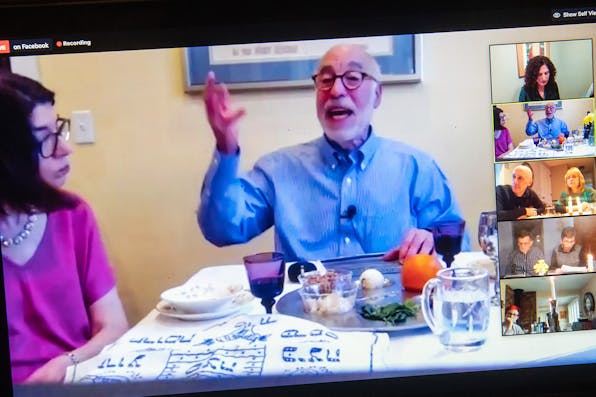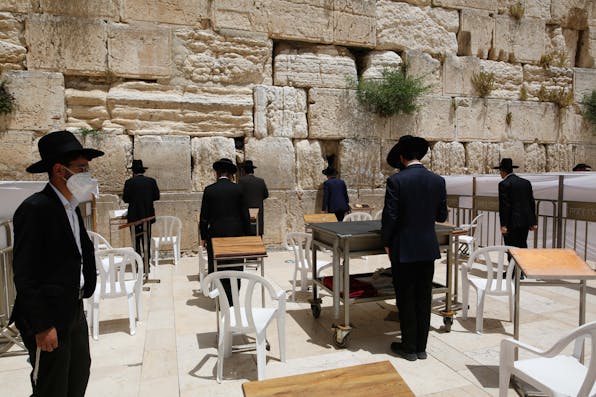
May 18, 2020
Why Sephardi and Mizrahi Approaches to Jewish Law Were Friendlier to the Zoom Seder
Lenient rulings in response to new situations are not necessary if unfortunate accommodations, they are instead a testament to the strength and durability of Judaism.
As a member of the Association of Scholars of the Maghreb in the Land of Israel, which issued the now-famous Zoom-seder ruling, I am very grateful to Chaim Saiman for devoting his scholarly attentions to it, and for his careful analysis. In my response, I would like to focus my attention on the distinctively Sephardi and North African methods of legal decision-making that lay behind the ruling. In doing so, I not only wish to offer a better understanding of the mindset behind it, but also to provide a window into a philosophy of halakhah (Jewish law) that is different from the conventional Ashkenazi conceptions that inform Saiman’s essay.
The best characterization of modern Sephardi jurisprudence was offered by Rabbi Yitschak Chouraqui in his 2009 essay “The Leadership and Tradition of Sephardi Sages in the Modern Era,” which argues that, faced with the social, cultural, and technological upheavals of the past two centuries, “Sephardi rabbis in Muslim lands did not withdraw from modern society,” and did not choose to create a “strict, isolationist Orthodoxy.” Instead, confronted modernity exhibiting a spirit of openness and flexibility.
One exemplar of this approach was Rabbi Ben-Zion Meir Ḥai Ouziel, who was the Sephardi chief rabbi of Israel from 1939 until his death in 1953, and whose opinion permitting the use of electricity on holidays Saiman cites. In the introduction to his halakhic magnum opus, Ouziel writes that “in every generation, conditions of life, changes in values, and technical and scientific discoveries create new questions and problems that require solution. We may not avert our eyes from these issues and say [that] anything not expressly mentioned by earlier sages is ipso-facto forbidden.”
Responses to May ’s Essay

May 2020
Can the Zoom Seder Foster Faith?
By Shalom Carmy
May 2020
Why Sephardi and Mizrahi Approaches to Jewish Law Were Friendlier to the Zoom Seder
By Daniel Bouskila
May 2020
Does Virtual Seeing Count as Seeing under Jewish Law?
By Shlomo Zuckier
May 2020
Sephardi Jewry’s Resurgent Cultural Confidence
By Aryeh Tepper
May 2020
The Zoom-Seder Ruling Reveals New Fractures and Coalitions in the World of Jewish Orthodoxy
By Chaim Saiman